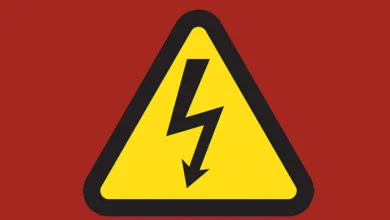Estate Planning Through Beneficiary Designations

As spring arrives, we may think about rebirth, renewal, spring cleaning, and getting things in order.
In that spirit, spring is a great time to check your beneficiary designations. While most people know you can name beneficiaries on your life insurance policies, many don’t realize just about every type of financial account allows you to name a pay-on-death (POD) or transfer-on-death (TOD) beneficiary — retirement, brokerage, money market, checking, and savings accounts.
Naming beneficiaries on your accounts is arguably the least-expensive probate-avoidance strategy available. In fact, many people structure their estate plans entirely by utilizing beneficiary designations. This allows loved ones to quickly have access to their inheritance without the need to go through the probate process, but I still recommend having a good will in place to address any potential contingency.
If you are considering beneficiary designations for estate planning purposes, keep in mind the following:
1. Beneficiary designations bypass any provisions you have in your will or trust.
Whoever you name on an account as a POD or TOD beneficiary can collect the assets in that account simply by completing a claim form with the institution. If your will or trust leaves money to a different beneficiary or splits to several beneficiaries, those provisions will not come into play at all. It’s important to remember a will or trust only controls assets coming into it, regardless of when the will or trust was written.
2. A minor cannot own property.
Minors under the age of 18 can be beneficiaries, but that person cannot access the funds until they reach the age of majority. Parents are often surprised to find even they cannot access those funds for the minor’s benefit unless they have gone through a court proceeding. If you name minors as beneficiaries, consider instead directing those funds to a trust for the minor’s benefit with a well-drafted will or trust.
3. Individuals may lose their needs-based governmental benefits if they are named as beneficiaries.
If someone in a nursing home is receiving Medicaid benefits, any inheritance they receive can cause them to lose those benefits. The best way to protect against this result is to direct the funds through a supplemental needs trust provision in your will or trust. This provides flexibility in how the funds get used for the benefit of the person, and also protect them from losing any public benefits.
4. Naming a joint owner with rights of survivorship may not work the way you thought it did.
In Texas, most joint banking accounts are held with rights of survivorship. This means if either of the joint owners passes away, the remaining owner has full ownership of the funds. This is another way assets can bypass probate. While this is an efficient way to transfer assets, keep in mind these funds will not be split amongst multiple beneficiaries. Rather, they go entirely to the surviving joint owner.
5. Marriage or divorce may not modify your beneficiary designations.
If you don’t want your ex-wife to inherit that IRA you spent years contributing to, you should verify she is not named as a beneficiary. Any time there is a change in marital status, you should revisit your beneficiary designations.
6. In addition to primary beneficiaries, you can also name contingent or secondary beneficiaries.
The contingent beneficiary only stands to receive the funds if the primary beneficiary has predeceased you. It’s a good idea to name someone as this “back-up” beneficiary.
7. Not naming a beneficiary does not always cause the funds to go to your estate.
This is particularly an issue with life insurance policies, where the terms of the policy control. Sometimes, if a beneficiary is not named, the policy will go to your next of kin — not your estate.
You can update beneficiaries at any time, and it’s easy to do so
Many financial institutions have their beneficiary designation forms online. Ask your financial advisor to help you review and update them. Verify any changes in beneficiary designation are actually processed by the financial institution and appear on your account.
Armed with this information about beneficiary designations, I encourage you to review each of your accounts and set a reminder to revisit these designations on an annual basis to make sure your choices are in line with your estate planning desires.





